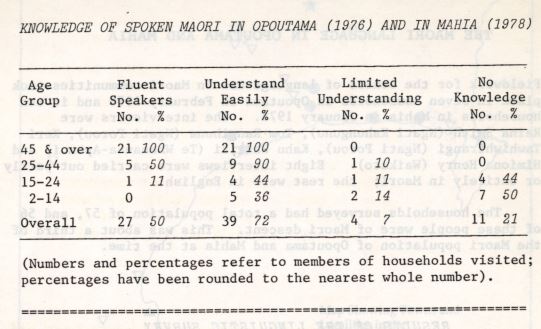-
Ngā Karere me Ngā Rauemi
News and Resources
Ngā Karere me Ngā Rauemi
News and Resources
-
Te Rangaihi Reo Māori
The Movement
Te Rangaihi Reo Māori
The Movement
-
Te Pae Kōrero
Our Community
Te Pae Kōrero
Our Community
-
Huihuinga
Events
Huihuinga
Events
-
Ngā Ara Ako
Learning Pathways
Ngā Ara Ako
Learning Pathways
-
SearchSearch
Search
Search

More than two-thirds of the people said they had been punished for speaking Maori as children at school. While they still spoke the language, some of them felt that, if the Maori language now has the support of the Department of Education, then the school should teach it and not the parents. Many older people still felt bitter towards their own teachers, and school-day memories were often unpleasant ones for them. Most of the people we interviewed were worried because fewer and fewer people, especially among the younger members of the community, knew or could speak Maori. Although they believed that Maori should be taught and spoken in the home from an early age, it was not easy to keep their mind on it when English was the language of television and radio, as well as newspapers, school books, and even comics.
Te Matau-a-Māui | Hawke’s Bay | Wairoa | 1970-79 | 5% of Māori children can speak te reo. (1970-75) | Story is by tangata whenua
















Comments